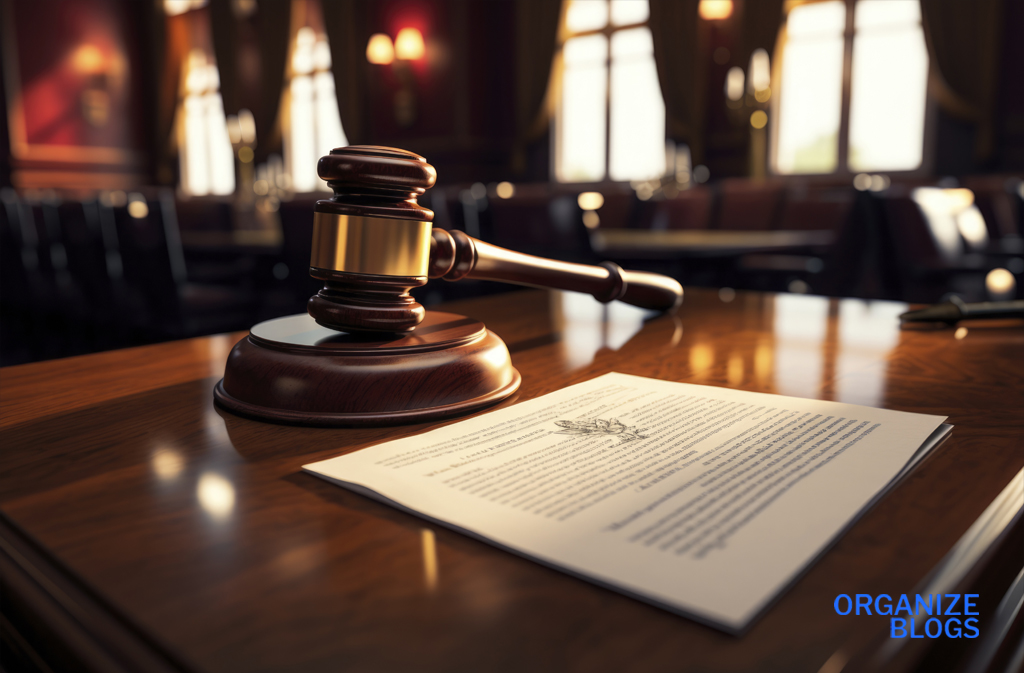The XRP lawsuit has been one of the biggest legal battles in the world of cryptocurrency. It all began in December 2020 when the U.S. Securities and Exchange Commission (SEC) filed a lawsuit against Ripple Labs. The SEC claimed that Ripple had sold XRP tokens as unregistered securities. This case has since turned into a long fight that has shaped the future of digital assets.
Because so many people trade XRP worldwide, the lawsuit quickly gained attention. Investors, lawyers, and crypto fans followed every legal development closely. The outcome of the XRP lawsuit is not just about Ripple Labs but could also affect how all digital assets are regulated in the United States.
Table of Contents
What Sparked the XRP Lawsuit?
The XRP lawsuit started when the Securities and Exchange Commission accused Ripple Labs of raising more than $1.25 billion through sales of XRP tokens. According to the SEC, these sales counted as unregistered securities offerings. Ripple, however, strongly disagreed with the claim.
Ripple argued that XRP should not be seen as a security. Instead, they explained it as a digital asset used for cross-border payments. Because of this disagreement, the case went to court. What seemed like a simple question—whether XRP is a security or not—has now become a year-long legal battle with huge consequences.
Ripple and the SEC: Two Sides of the Story
Ripple Labs has always said that XRP is different from stocks or bonds. They see it as a token designed to move money quickly across borders, making transactions faster and cheaper. For this reason, Ripple believes the SEC is wrong to treat XRP as an unregistered security.
On the other side, the SEC argues that Ripple raised money by selling XRP tokens, which makes them securities under U.S. law. The SEC says that Ripple should have followed the same rules as companies that sell shares to investors. This conflict between Ripple and the SEC is at the heart of the XRP lawsuit.
Key Legal Developments in the XRP Lawsuit
Since December 2020, the XRP lawsuit has gone through many legal twists. Both Ripple Labs and the SEC have presented their arguments, and judges have made several important rulings. In 2023, Judge Analisa Torres ruled that XRP sales on public exchanges did not count as securities. This was a big win for Ripple and its supporters.
However, the judge also said that some XRP sales directly to institutional investors might still be considered securities. Because of this, the case is not yet fully resolved. Each legal development brings new discussions, and the crypto community watches closely for signs of a final decision.
How the XRP Lawsuit Affects XRP’s Price
Whenever there is news about the XRP lawsuit, XRP’s price often reacts quickly. For example, after Judge Torres’s ruling, XRP’s price jumped as traders felt more confident in Ripple’s future. On the other hand, when negative news comes out, XRP trades usually slow down, and the price falls.
Because investors care about clarity, the lawsuit’s outcome will likely have a long-term effect on XRP. If Ripple wins fully, XRP could see more adoption and higher trading volume. But if the SEC’s view is upheld, XRP might face new restrictions in the U.S. market.

The Role of Judge Analisa Torres
Judge Analisa Torres has played a central role in the XRP lawsuit. Her decisions have shaped how the case has moved forward. By carefully reviewing arguments from both Ripple and the SEC, she has given the world a clearer view of how courts may see digital assets in the future.
Because her ruling partly favored Ripple, many in the crypto community saw it as a turning point. While the case is still ongoing, her leadership has shown that judges can adapt old laws to new technologies like cryptocurrencies.
What the XRP Lawsuit Means for Digital Assets
The XRP lawsuit is not only about Ripple. Its outcome could affect all digital assets in the U.S. If XRP is declared a security, then many other tokens may face similar legal challenges. This would bring stricter rules and more government oversight.
On the other hand, if Ripple wins, it may set a strong example that not all tokens should be treated as securities. This could open the door for more innovation in blockchain and cryptocurrency. Because of this, the lawsuit is closely watched by investors, companies, and lawmakers worldwide.
Ripple Labs’ Response to the XRP Lawsuit
Ripple Labs has fought back strongly since the beginning of the XRP lawsuit. The company argues that the SEC failed to give clear rules about digital assets before suing. Ripple also says that treating XRP as a security could hurt not just their business but also the entire crypto industry.
In addition, Ripple has continued to grow despite the case. The company has expanded its partnerships for cross-border payments and kept pushing forward with its vision. This shows that Ripple is not waiting for the lawsuit to end before moving ahead with its plans.
Possible Outcomes of the XRP Lawsuit
There are several possible outcomes for the XRP lawsuit. One option is that Ripple and the SEC reach a settlement, which would bring the case to a close without more court battles. Another option is that the case goes to a full trial, where a judge makes a final decision.
Formally closing the lawsuit will give XRP traders and investors more certainty. No matter the result, the XRP lawsuit will likely influence how digital assets are handled for years to come. The case has already become one of the most important legal battles in crypto history.
Conclusion: Why the XRP Lawsuit Matters
The XRP lawsuit is more than just a fight between Ripple Labs and the SEC. It represents a turning point for the future of digital assets. Since December 2020, the case has shown how laws made for traditional finance are being tested against new technologies like blockchain.
Because the outcome will affect investors, companies, and governments, the XRP lawsuit is closely followed around the world. Whether Ripple wins or the SEC succeeds, the result will help shape the future of cryptocurrency and the way digital assets are seen under the law.

FAQs
1. What started the legal case between Ripple and the SEC?
The case began in December 2020 when the U.S. Securities and Exchange Commission accused Ripple of raising over 1.25 billion dollars by selling digital tokens as unregistered securities.
2. Why does this case matter for the crypto industry?
The outcome could set an important example for how digital assets are treated under U.S. law. If Ripple loses, other tokens may face stricter rules. If Ripple wins, it could encourage more innovation in the crypto space.
3. How has the court ruled so far?
Judge Analisa Torres ruled that sales of XRP on public exchanges did not count as securities. However, some direct sales to big investors might still be considered securities. This split decision means the case is still ongoing.
4. How does the case affect the price of XRP?
Whenever there is positive news, XRP’s price often rises because investors feel more confident. Negative updates, on the other hand, usually cause the price to fall. The final decision will likely have a lasting effect on its value.
5. What could happen next in the legal process?
There are a few possible outcomes. The two sides might reach a settlement, or the case could go to a full trial. Formally closing the case will finally bring clarity to Ripple, investors, and the entire digital asset industry.
Visit our website: Organize Blogs

